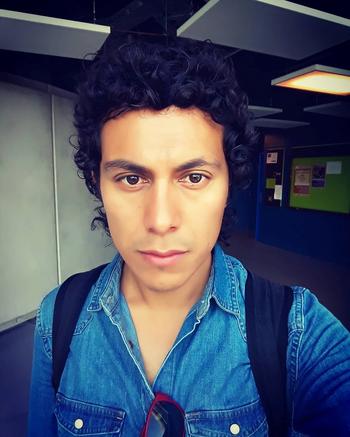Edgar Córdova Morales

International Research Training Group 'Temporalities of Future in Latin America'
PhD Candidate
Anthropology
Project: "Border Struggles for the Search of Missing Migrants: A Transoceanic Ethnography of Political Subjectivities, Justice and Violence in Mexico's Southern Border and the Central Mediterranean Route"
Project: "Border Struggles for the Search of Missing Migrants: A Transoceanic Ethnography of Political Subjectivities, Justice and Violence in Mexico's Southern Border and the Central Mediterranean Route"
Supervisor:
Dr. Rachel Sieder (CIESAS)
In this doctoral research, I analyze the border struggles carried out by two organizations searching for disappeared migrants in some of the main migratory transit scenarios in the world: the southern border region of Soconusco in Chiapas, Mexico, and the Tunisian coasts of the Zarzis area in the Central Mediterranean, critical and border enclaves within some of the most dynamic, well-traversed, and violent migration circuits in the world under the current global framework of neoliberal capitalism. My main objective is to identify and analyze the novel political, justice and solidarity subjectivities that organizations dedicated to the search for missing migrants generate by converging with a melting pot of actors in solidarity with their processes of searching in Tunisia and Mexico, such as migrant populations and anti-racist activists in favor of free movement. Likewise, I wonder in what way a linked analysis of these organizations could constitute a transoceanic struggle against a global border regime, understood as an assemblage of knowledge and powers that circulate and take shape through the articulation of migration policies, laws, and treaties by states and private organizations whose violence is framed in a historical continuum of racism and xenophobia within a genealogy of colonialism and dispossession.
Based on critical border studies, critical geography and the perspective of the autonomy of migrations, I understand these border struggles as a set of organizational practices where a melting pot of heterogeneous actors but equally excluded from state orders in terms of citizenship, class and race, are articulated for the creation of networks that aim not only to question the control of cross-border mobility but also to propose new forms of life, subversions and justice in these spaces. Consequently, I propose that the seeker of missing migrants has emerged as a key and global political figure, who, by attributing cross-border mobility a central importance for both political and justice goals, rejects the dominant and systemic logics around politics, containment immigration laws and, more broadly, the legal frameworks of the state borders whose violence seeks to regulate their bodies and subjectivities.
Based on a multi-sited ethnography, I accompanied and collaborated with two organizations that constitute emblematic cases of novel border struggles in Latin America and the Maghreb in recent years: The Mesoamerican Migrant Movement - which supports a Central American network of organizations in search of the disappeared around Mexico - and the Tunisian association La Terre Pour Tous, whose members try to trace their missing relatives in the central Mediterranean when they tried to reach Europe.


